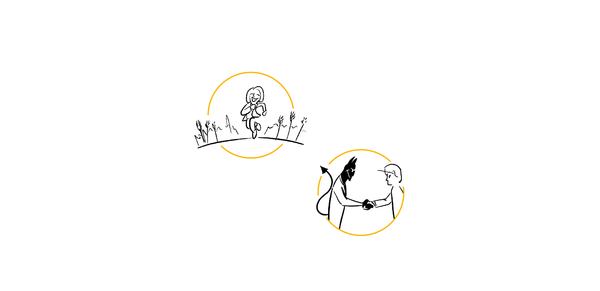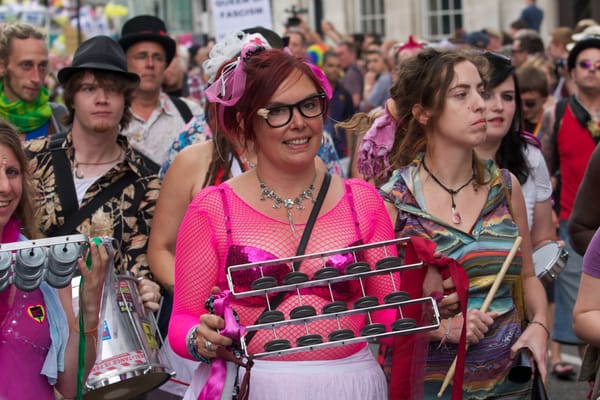Three years after my roommate’s death I’m ready to move on
Jonathan Masters discusses grief, guilt, and mental health
A few weeks ago I finally came to the end of my three year course at Imperial, and although it is a cliché, the time has simply flown by. As I handed in the final final final draft of my undergraduate dissertation into turnitin, I suddenly burst into tears. Now it could have been a combination of the fact I had just made the deadline and the stress that was associated with that, but my thoughts immediately went to the path that had led me to this point. This was triggered by a song called Carissa by Sun Kil Moon that had popped up through the shuffle function on my Spotify, but it sent me right back to the period of time during my first year with the death of my roommate.
I had known Georg for four months at that point, and whilst there are many stories of roommates despising each other in their first year, our relationship was not that. We immediately became very close and got on very well. We both had little quirks that annoyed each other: for me it was how he was always working hard, making me feel guilty by extension; and for him I’m well aware that my messiness annoyed him greatly. We talked about our lives and dreams, and relationships. I felt as though I could tell him anything and I thought he felt the same way which is why to this day it makes no sense to me why on the 3rd of March, 2015, he fell from our bedroom window whilst I was having breakfast.
To clarify, the coroner’s report stated that there was not sufficient evidence to conclusively say it was suicide, but I have thought about the events of that day, every day for the past three years, and I cannot think of any other explanation. I also found a note on his desk suggesting these thoughts, although it must be stated that this handwriting could not be confirmed to be 100% his. It’s not difficult to find the reports – I occasionally google his name to see if there is anything else written about him, and I know I’m mentioned in an article somewhere in relation to it.
After the ambulance came, the police spoke to me to make sure I had no involvement in his death. I walked to classes because I couldn’t stay in that building any longer. I remember just a sense of complete numbness that didn’t stop until the evening when we had a hall meeting – where I cried for hours. I spent much of that day trying to think of the best positive outcome. His injuries would be serious, but maybe he would survive.
The following day I went to St Mary’s hospital to see him in the Intensive Care Unit where I met his family for the first time. I waited in the waiting area for a few minutes before his father came out and explained to me with slow and considered words that Georg would never be the same again, and that the brain injuries he had sustained were life changing. I went in to see him. Both his legs were in casts, he was breathing through a ventilator, he had more tubes going into him than I could count, and his face was unrecognisable from the fall. I said goodbye to him and left the hospital to phone my parents, who I hadn’t said anything to. I burst into tears once again, and my mum said she would come to pick me up and take me home.
He died a few days later on the 7th of March whilst I was at home trying to block the whole event out of my head, and I returned back to halls to be told by his grieving parents and brother. I don’t really remember much from that time until I went to Berlin for a week for his funeral. I can never thank his parents enough for the kindness and hospitality that they gave me in the darkest time of their lives, but guilt lingered throughout that entire trip, and to an extent it still does. Despite me confessing this to so many people, there is still the idea at the back of my mind that I could have done more. I could have noticed earlier. I could have told him about my depression. Maybe he would have opened up to me and we could have worked through it together. Maybe it was nothing related to mental illness at all. A million maybes come up when I think about that year, but not enough answers.
I still maintain a friendship with his parents and his brother, partially out of a sense of duty, but mostly because I genuinely really like them. I had the strangest thought this year that I have known them longer than I ever knew Georg, and yet it still feels like he is the one that I am trying to make this up to. Whenever I go to Berlin I take the tram to the outskirts of town and visit his grave, and whilst it is odd to be 21 and visiting graves of people I once knew, I will forever have this sense of duty towards him. I talk occasionally to his brother and parents and exchange holiday greetings; however, sometimes I think perhaps I am a chapter of their lives they would rather forget. If that is the case, then I wish them no ill will and will always be thankful for their patience.
Recently I lost my wallet which had a passport photo of him inside, and when I lost it, it felt that perhaps it was time that I stopped grieving for him. To stop grieving is not to forget, but to live your life without their death impinging on your life. I miss him everyday, but he made a decision that can not be changed. For months afterwards I tried to console myself with thoughts such him dying young, meant that he would never have to see anyone close to him die, that he would never have to go through anymore pain, but as I reflect back on those ideas, they seem false.
If you ever feel like life is not worth living, take time out. Go back home. Seek help from other people. If you ever feel like you are too stressed and upset to continue, talk to someone, take a year out, university can always wait. If you ever feel like you have nobody to talk to, I can guarantee there is always someone out there who would rather listen to you cry than have to go to your funeral.
Georg was 20 years old, he had a passion and a talent for computing, and he was my friend whom I miss every day.
If you’re struggling with depression and need someone to talk to, you can reach support on the Samaritans’ helpline 116 123








